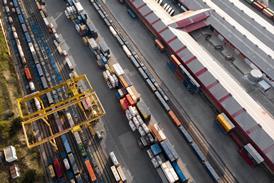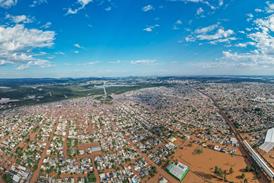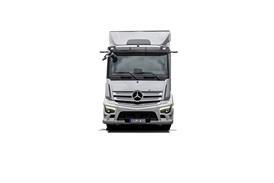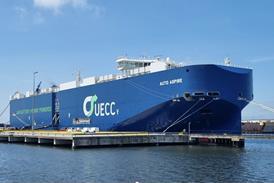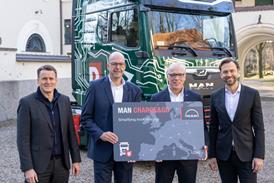
In 2009, DB Schenker will realign its automotive services to combine the networks and offerings from its three subsidiaries: Schenker Automotive RailNet, Spanish logistics provider Transfesa and finished vehicle logistics provider ATG. The automotive group, which will be focussed on rail and intermodal transport, will not be rebranded.
The realignment is being led by Axel Marschall, DB Schenker’s Executive Vice President, Automotive Rail. He works beside Wilfried Kramer, Managing Director of Automotive RailNet and ATG, and Luis del Campo, Managing Director for Transfesa. In an exclusive interview with Automotive Logistics, Marschall, who as head of strategy played a key role in DB’s acquisition of Schenker in 1999, said that the automotive industry has been a focus point for the company’s development, particularly for intermodal transport. “We see from what we’re learning in automotive that we can combine what we are doing in the Group in total, for railway activities for finished vehicles and components, and even truck-based solutions, contract, air and ocean freight,” Marschall said.
DB Schenker took a controlling stake in Transfesa last year and owns 100 per cent of ATG. The realignment was timed to showcase the Group’s services for DB’s part privatisation. Its initial public offering to the stockmarket was originally scheduled for November this year but has been postponed indefinitely because of poor market conditions.
Both Marschall and Kramer stressed that rail use would continue to grow for the automotive industry beyond the current crisis. Up until the last quarter of 2008 the company had seen rail services for the automotive industry grow by five per cent year-on-year for the past five years. Markets with the largest rail increase have been those with more open rail markets, such as Germany, the UK, Sweden and Eastern Europe, while closed rail markets – like France, Spain and Poland – have seen rail freight decrease.
However, Marschall said that the last quarter saw the Group lose much of that growth, with service levels dropping to 2005 figures. He revealed that while DB Schenker would have to scale back capacity, the rail industry would not suffer from as much excess capacity as the trucking sector, thanks mostly to order cycles of around two years for new wagons. The Group will not slash pricing to the same extent as road hauliers. “We have to think cleverly in terms of managing our capacity because reducing prices is not the overall solution,” said Marschall.
Kramer added, however, that the company would continue its investment strategy, albeit scaled back, with a view that growth would return. Among those strategies is expansion eastward, to Turkey and Russia.
DB Schenker already manages rail flows for VW to its Russian plant in Kaluga. Kramer said it was considering building a rail hub there, where Volvo, Mitsubishi and PSA also have production plans. “This will be important: going east from Germany, and eventually coming west from China or the Far East,” said Kramer. “This is a vision, but not yet reality.”









